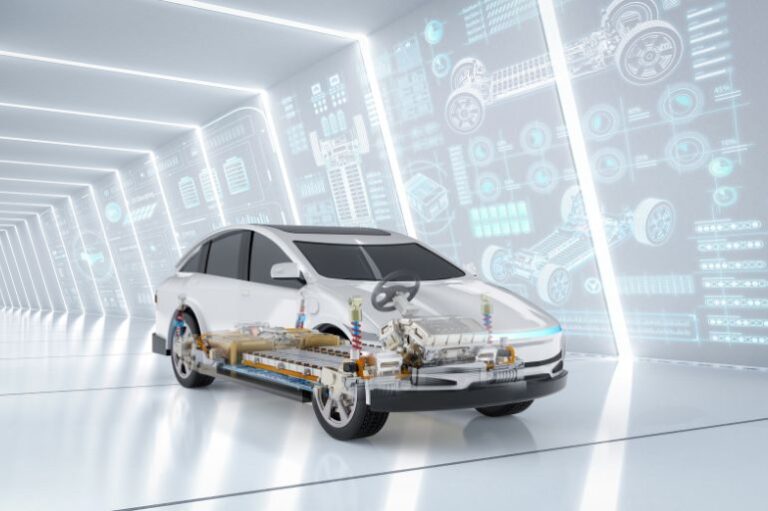The fleet management industry is on the cusp of a transformation, driven by the increasing popularity of novated leasing and the shift towards electric vehicles (EVs). However, despite these advancements, the industry has been slow to adopt digital technologies that could greatly enhance the customer experience. Sid Jha, Group Executive for Novated Leasing and Electric Vehicles at Smartgroup, sheds light on these trends and the challenges that lie ahead.
Novated leasing: An untapped opportunity
Novated leasing remains one of the most tax-effective ways for employees to purchase a vehicle, yet it’s not as widely known or understood as it should be. Jha, who joined Smartgroup with a background in high-tech industries, was drawn to the sector by the opportunity to modernise and simplify the way novated leases are presented and understood.
“What got me interested in this industry is that it plays an important function in employee benefits, yet it’s so underutilised,” Jha explains. “It’s so much better for an employee to tailor their compensation package with a novated lease, but the process has been made overly complicated by industry players.”
One of Jha’s primary goals at Smartgroup is to demystify novated leasing, making it more accessible to the average consumer. He believes that through better education and engagement, particularly via digital channels like social media, the uptake of novated leasing could see significant growth.
Electric vehicles: A catalyst for change
The rise of electric vehicles has also put a spotlight on novated leasing. The Fringe Benefits Tax (FBT) exemption on electric vehicles has made them more affordable and attractive, particularly through a novated lease. According to Jha, this legislation has been a game-changer, with many automakers adjusting their pricing strategies to bring more models under the luxury car threshold, making them eligible for the FBT exemption.
“Today, with government benefits and the FBT exemption, a teacher can buy a Tesla Model 3 for the cost of a Mazda,” Jha notes. “This has driven a lot of demand for electric vehicles through novated leases.”
However, the adoption of electric vehicles is still in its early stages, with concerns about range, battery health, charging infrastructure, and cost acting as barriers. Jha emphasises that while the industry is evolving—prices are dropping, and technology is improving—there is still much work to be done, particularly in building a more robust charging infrastructure.
The slow pace of digitisation
Despite the potential for growth, the industry has been slow to embrace digital transformation. Jha points out that the sector still largely operates on traditional models, with limited digital engagement with customers. This is a significant missed opportunity; especially as digital platforms offer a way to simplify the novated leasing process and make it more accessible.
“Nobody has time these days to spend an hour on the phone understanding what a novated lease is,” Jha says. “But if you can put something on Instagram, Facebook, or TikTok—a 30-second video explaining the tax benefits of buying a new car—that’s something people will engage with.”
Moreover, the industry’s working hours often don’t align with when potential customers have time to explore their options, such as on weekends. Jha believes that by making the process more digital and accessible at any time, the industry could see a significant boost in customer engagement and sales.
Looking ahead: Building trust and simplifying the process
For the industry to truly evolve, there needs to be a concerted effort to build trust and simplify the novated leasing process. Jha acknowledges that the industry still struggles with consumer trust, partly because the benefits of novated leasing are not always clearly communicated, and some players are not transparent about costs.
“The industry as a whole doesn’t have a strong level of trust with potential buyers,” Jha admits. “Unless you’ve done it before, it’s a new relationship you have to build from scratch.”
However, the industry is taking steps to address this issue. In collaboration with the National Automotive Leasing and Salary Packaging Association (NALSPA), efforts are underway to develop a Code of Practice. This initiative aims to increase transparency and build consumer confidence, complementing the positive moves already made by individual industry members.
To overcome these challenges, Jha advocates for greater transparency and a more customer-centric approach. By making information readily available and easy to understand, the industry can help customers see that novated leasing is not as complex as it might seem.
While novated leasing and electric vehicles present significant opportunities for the industry, the slow adoption of digital technologies and the need to build consumer trust are challenges that must be addressed. With leaders like Sid Jha pushing for change, there is hope that the industry will soon catch up to the demands of modern consumers, offering them the benefits of novated leasing in a more accessible and transparent way.






